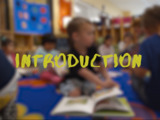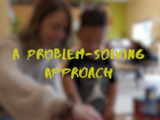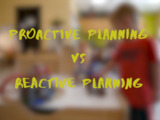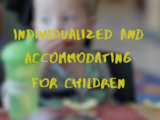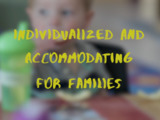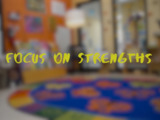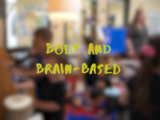5 Key Considerations for Fostering Inclusive Practices in Early Learning
Inclusion, Inclusive practices,Todd Wanerman, Early Years, Early Learning, Inclusive environments, Fostering inclusion, Inclusion videos
Introduction: Fostering Inclusive Early Learning
This eight-part video series on fostering inclusive practices in early learning, features Todd Wanerman and explores five key considerations for inclusive practices in early learning programs.
You are welcome to view each video in order or as separate modules. This video series was made possib...
PROFESSIONAL Video
Public Video
A Problem Solving Approach: Key Consideration #1
This video invites educators to approach challenges as opportunities for growing and learning. This view of problem-solving includes many different players and groups, and it envisions ways for them to work together. Educators who adopt a problem-solving mindset will transition from reacting ...
PROFESSIONAL Video
Public Video
Proactive Planning vs. Reactive Planning: Key Consideration #2
This video invites educators to take a proactive approach. Being proactive implies predicting challenges in advance, planning our responses, and providing support rather than reactive remediation. Proactivity changes how we view environments, materials, routines, and transitions. But more than...
PROFESSIONAL Video
Public Video
Individualized and Accommodating (Children): Key Consideration #3a
This video invites educators to get to know each individual child as unique. It includes learning about their strengths and preferences, learning about their style of learning and self-expression, learning about their greater context, and learning about the challenges they face. Accommodations ...
PROFESSIONAL Video
Public Video
Individualized and Accommodating (Families): Key Consideration #3b
This video explores how educators can view work with families to build a trusting mutual relationship as educators and families each bring their own expertise to the partnership. Together they can create an environment where accommodations can be viewed as a universal aspect of learning: Everyon...
PROFESSIONAL Video
Public Video
Focus on Strengths: Key Consideration #4
This video explores how accommodations must be based on strengths and not on challenges or deficits. We can effectively support all children by helping them use their strengths to grow and develop. It is a cornerstone of inclusion to view families as capable and competent and to find the streng...
PROFESSIONAL Video
Public Video
Body & Brain: Key Consideration #5
This video explores how inclusive educators understand that the brain is part of the body and that children need to feel physically safe, comfortable, and regulated to learn. As such, an inclusive approach is fundamentally brain and body-based - not just because it supports individual children w...
PROFESSIONAL Video
Public Video
Conclusion: Fostering Inclusive Early Learning
In this conclusion video, we explore how an inclusive program looks at families, staff, centers, and communities in the same way that it looks at individuals: everyone is working on something. Everyone has strengths, and everyone has challenges. Inclusion puts forward a vision of community, com...
PROFESSIONAL Video
Public Video

